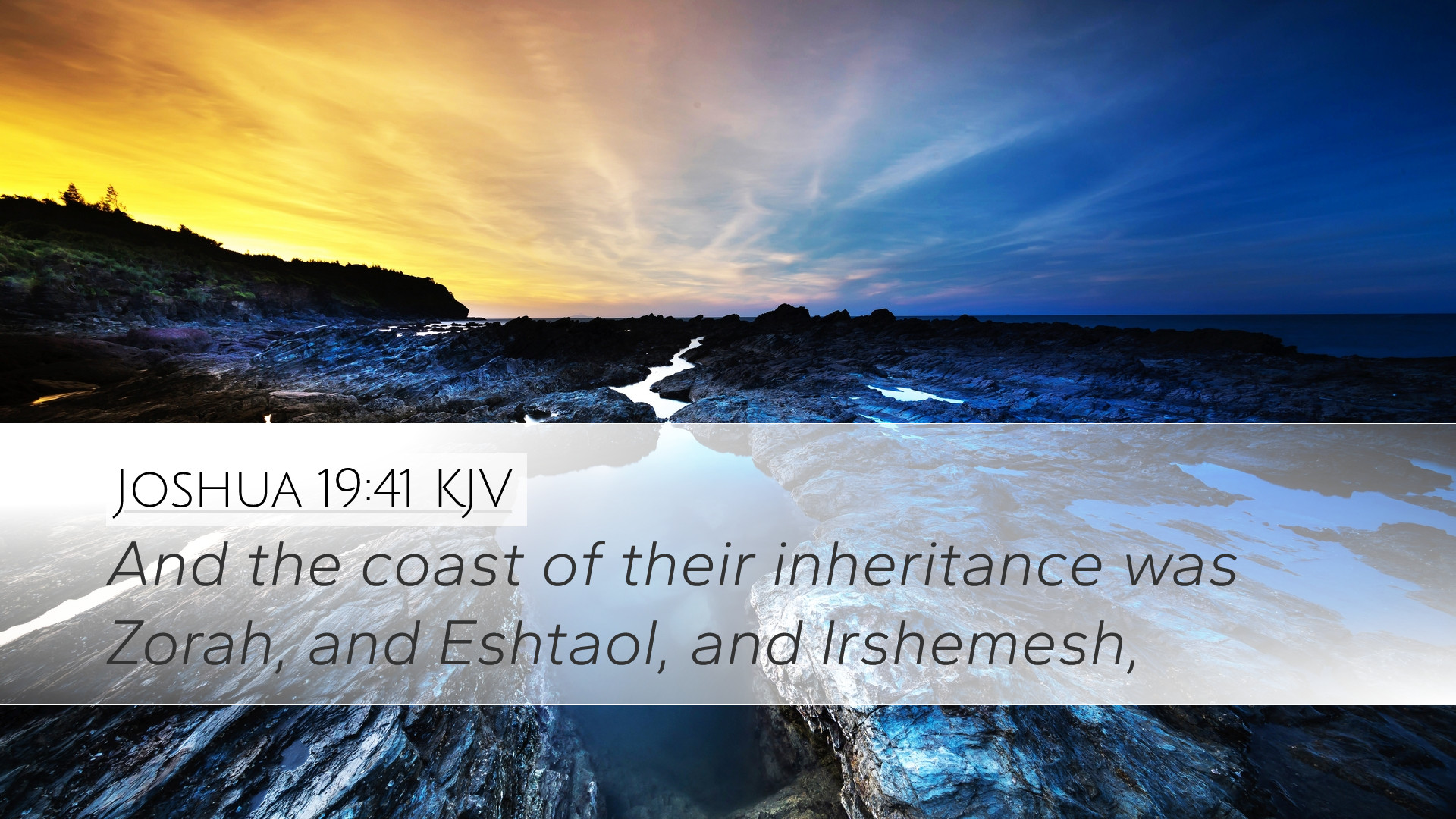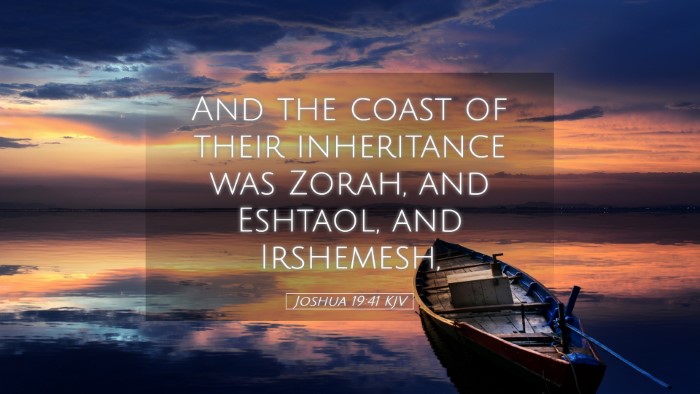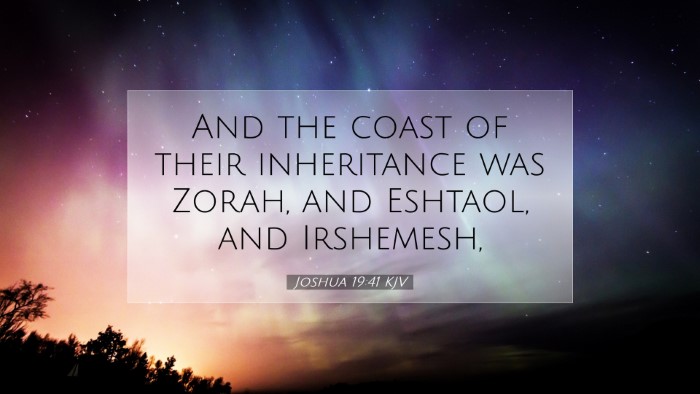Commentary on Joshua 19:41
Verse Summary: Joshua 19:41 states, "And the towns of the tribe of the children of Benjamin according to their families were Jericho, and Bethhoglah, and the valley of Keziz." This verse delineates the land allocated to the tribe of Benjamin, showcasing its importance and the specific towns that were included in their inheritance.
Historical Context
The Book of Joshua marks a significant transition for the Israelites as they move from a nomadic existence to establishing themselves in the Promised Land. The distribution of land among the tribes is a central theme in this book. This particular verse falls within the broader context of how the tribes of Israel were allocated their inheritance.
Significance of the Tribe of Benjamin
The tribe of Benjamin holds a unique position in Israel's history, not only geographically but also in terms of its role in the narrative of the Old Testament. Known for its warriors and its eventual capital, Jerusalem, Benjamin's significance cannot be overstated.
Insights from Matthew Henry
Matthew Henry emphasizes the importance of enumeration in the land distribution, which reflects God’s order and providence. He notes that the listing of towns not only communicates a specific geography but also signifies God's faithfulness to His promises to the patriarchs. Henry points out the spiritual lessons in land ownership, suggesting that it represents a deeper spiritual inheritance for believers.
Insights from Albert Barnes
Albert Barnes takes a more detailed examination of each location mentioned in the verse. He highlights Jericho's historical significance as the first city that the Israelites conquered under Joshua's leadership, symbolizing God’s power and faithfulness. Barnes identifies Bethhoglah and Keziz in terms of their geographical and strategic importance, allowing for a deeper understanding of Israel's settlement patterns.
Insights from Adam Clarke
Adam Clarke provides a comprehensive linguistic analysis of the towns mentioned. He delves into the etymology of their names, revealing rich meanings that contribute to the overall understanding of their significance. For instance, Clarke notes that Jericho, often referred to as "the city of palm trees," symbolizes prosperity and beauty, which represents the blessings awaiting the tribe of Benjamin.
Theological Implications
This verse serves as a reminder of the tangible blessings of God’s promises. It invites theologians and scholars to ponder the implications of divine inheritance. Just as the Israelites received their promised land, believers today claim their spiritual inheritance through Christ, inheriting the blessings of redemption.
Application for Modern Readers
For pastors and students of the Bible, this verse calls for an exploration of the themes of stewardship and responsibility. Each town signifies a portion of God’s provision, encouraging contemporary believers to acknowledge the gifts and responsibilities they have been entrusted with in their communities and churches.
Conclusion
Joshua 19:41, while concise, opens a rich tapestry of historical, cultural, and theological insights. The towns mentioned serve as a backdrop for understanding God’s faithfulness to His covenant people, while also acting as a metaphorical framework for believers today. This commentary invites deeper reflection on the nature of God’s promises and the inheritance that believers will receive.


